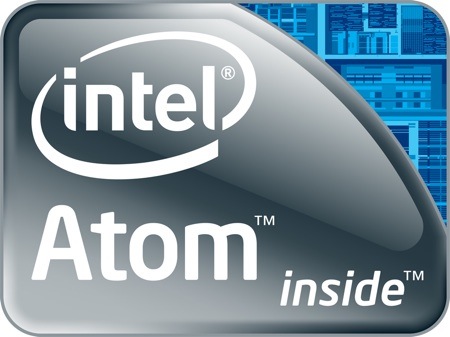An atom, is an atom. Extremely small, and useless, when by itself. Netbooks are powered by this weak intel processor: Atom.

We have, what is, a complete OS, the Windows7. Its great, and its slow. Terribly slow, if you use it regularly, especially, for hard-core work like Photoshop, AutoCAD, Office, and web videos.
If editing documents, designing arts or manipulating photos, is what your main work is. Windows7 is the place to be. However, for the more casual browsing on computer, like going through your social network, a few YouTube streams, or some new/favourite music is the thing you do with this machine, then,
- Get a life
- Get a new OS
A. Get a life
Start doing something. Your life is empty. You aren't working on any 'real' project? Write down things that you know. Write down things that you learnt from experience. Write down your memories. Type them. Type your work. Publish it as a proper document, as a professional looking pdf.

Work with photos. You just have to keep a lens around with you: at conferences, on trips, and even on those normal looking days. A picture's worth a thousand word. You know that. Seeing is believing. You understand. So take those photos. Go through them on your computer (I use Picasa); edit them. Remove the noise. And finally, publish. Online, if you may, so we shall all see.
And don't get me started on the importance of computation. Here's an engineer talking. Use Excel. Period.
B. Get a new OS
You have a life. You work on your 'projects', but on those odd moments of the day, you turn-on that netbook, for some fun, but what you end up getting is pain. Especially, pain in your knees and shoulders. You are waiting a long wait. A series of waits! Waiting for Windows7 to start. Then for Google Chrome to launch. Then, the website. And finally, Chrome hangs. Ctrl+Alt+Del. "Please wait. Windows is restarting", is the reassuring message.
"There goes my 'fun' time", you cry.
Get a new OS. Move(ing) out of windows, so the title goes. People often comprehend this as "get a new computer, or better still, a shiny new tablet". A few days back, even I thought on these lines.
I was snailing my way on Windows 7, and thinking, "Heck, there must be some way out of here." Just a little look around, and voila! I first found Chromium OS (Google), then, MeeGo, from Intel, and finally, JoliCloud.
Three operating systems. Ready to be tried. Yummy. I learnt, that all of them were built up using the (free) Linux system.
Disclaimer: Linux signifies speed, and ugliness, in usually 1GB of an Operating system.
 First: Chrome OS (the Google OS)
First: Chrome OS (the Google OS)
Chrome had to be fast. The concept behind chrome OS, dubbed Chromium, is this: a web browser, which starts real fast, and has web apps. So you are either online and using Chrome OS, or offline, and looking at a dumb browser, that can to do pretty much, nothing!
This is a serious flaw. There are times, and there are places, where you won't be connected to the internet. For all those situations, you would prefer good 'ol Windows (Seven).
Once installed, Chrome starts up in 30 seconds. That's pretty fast if you have arrived from the Microsoft system, where anything around 2 minutes wait is quick, while three to four minutes is the normal time we expect windows to be up and running.
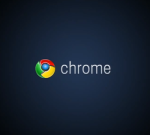

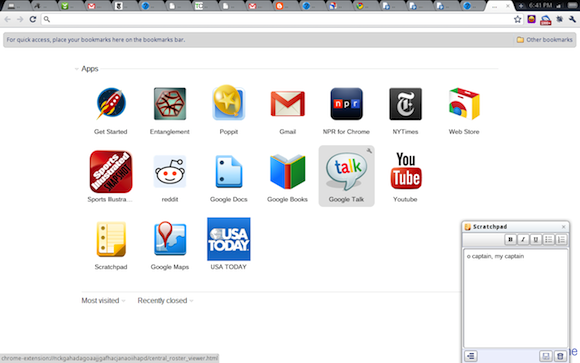
So imagine, I want to just look up a Geology term on the internet. Or, I simply want to check my Facebook wall, and a few other websites, I follow regularly. In that situation, Chrome OS, would prove really handy. Cool!
Okay. Come back to reality. Chrome OS, once installed, loads fast. But here's the missing feature: speed. Its so unlike Chrome, which we have known for its sleekness, and agility. It stutters. Its like King George VI (the King's speech), without the speech therapy, of course.
I, I (huh) ...
Maybe, the problem lied on my side. Chromium is meant to be a built-in OS, and not an install-anywhere OS. In that case, Chromium's prospect look even worse. Imagine a computer, that has just one software; and that, a browser. ![]()
You are now that pitiful patient, reliant on the ventilator. The pitiful user, reliant on the internet. Dependent on constant connection.
Disconnected, and lost.
The ChromeOS is a suffocating place. So, lets get out of this hole.
 Second: Meego (the intel OS)
Second: Meego (the intel OS)
Disillusioned by the stuttering Chromium, I started with Meego, with very little hope. I was in for a surprise; in fact, two surprises.
The first surprise
On first impression, Meego wins over you. The design is slick. Especially if you are one of those tablet design fans (ipad, etc).

Meego was slippery fast. Really fast. (I had to say that twice. Because that's how much its speed amazed me). It looked like a present from the skies: Music, simple system controls, built in Chrome browser, and email application. There were tons of other goodies as well.
But.. .
The second surprise
I was waiting for the catch, and here it was: meego did not remember my settings. Every restart meant that I started afresh: giving my wifi password, logging into mail, etc, etc. Not a single byte of my settings and preferences, were saved.
![]() So, what was the deal instead: I had to install Meego to my hard drive, and not a 'handy' usb stick to use Meego without losing my preferences. A lightning bolt struck me (from the skies, again!).
So, what was the deal instead: I had to install Meego to my hard drive, and not a 'handy' usb stick to use Meego without losing my preferences. A lightning bolt struck me (from the skies, again!).
Next, came the Intel disclaimer: "You can install Meego only as your primary Operating system". This meant that I had to forget windows, or say good bye to Meego.
I loved Meego. But it was time to part ways. Me Go(es).
Being without Windows is not possible. Intel should have known that.
Note: I went through many websites and forums, which claimed that it was actually possible to install Meego and Windows7 side- by-side. But the procedure was unofficial, and difficult, and I am a busy man, with lots of projects to work on.
 Third: JoliCloud (the cloud OS)
Third: JoliCloud (the cloud OS)
Lets begin with some introduction first. The name: Joli (+Cloud), is a stupid name. Its an embarrassment to pronounce it in front of friends and family. "Hey, I am using Joli-cloud these days, instead of that slow Windows ..", and your friends look back at you with weird expression, with pity.
Next, the name has this Cloud with it. (Cloud refers to the use of internet space using high speed internet, as if it was your hard drive). What this means is: there are absolutely no apps. Whatever you get is a web site, which can, of course, thanks to Html5, behave like a complete application. Almost!
The installation of JoliCloud (oh I hate pronouncing that word, lets call it Jay Cee henceforth.), is refreshingly easy. After downloading the Jay Cee installation file, it was just a few clicks on Windows7, and deciding which drive to install the OS on, that I had a new operating system to play with. That's what the screen read.
(Note: JoliCloud intalls like just another software on your windows PC. So don't worry, the installation wont wipe the drive clean).
So I hit restart, and Jay Cee starts itself. 10 minutes of first time start up. Frankly, this is when, Jay Cee is actually beginning installation. What we did on Windows7 before the restart, was just the preparation for this installation.
Jay Cee lies in the same category as Chromium, and Meego. Its a Linux variation, and it starts up really quick. Mine starts in 25 seconds (and shuts down in three seconds flat)!

Once started. Jay Cee asked me to register for a JoliCloud account, or simply connect with Facebook. With the 'why bother attitude', I selected the connect with Facebook option. So I did not have to create a new account for a stupid sounding Operating system.
The fun began, when I learnt that Jay Cee had a few built in apps. That meant that I could work without the internet. They were: media player (VLC), photo editor (GIMP), and mail (thunderbird), and a pdf reader.
The interface was not as snappy as Meego's, but not as slow as Chromium; somewhere in between. That was fine for me.
A bundle of surprises awaited. First, I learnt that Jay Cee, is actually Chromium built into a Linux system. Confusion, confusion.
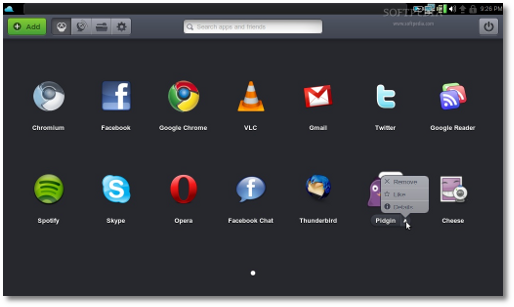
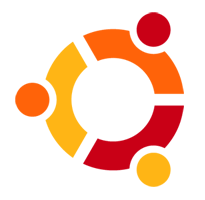 So, jay cee should have behaved exactly like Chromium did. No. It didn't. It was adequately fast. And this came as a surprise, since Chromium (see above), is just Chrome browser, while Jay Cee, is Chromium plus a little bit of Linux (ubuntu). It has an app store, with apps like Open office, etc.
So, jay cee should have behaved exactly like Chromium did. No. It didn't. It was adequately fast. And this came as a surprise, since Chromium (see above), is just Chrome browser, while Jay Cee, is Chromium plus a little bit of Linux (ubuntu). It has an app store, with apps like Open office, etc.
Update: After a few days working on Jay Cee, I learnt that it could install all Linux apps. It supports the Debian format (.deb). So I was able to install: Google Earth, Picasa, Foxit PDF reader, plus my favourite other browsers: Opera, and Firefox.
Another surprise, was to learn that this built-in Chromium had no Flash. So much, as Html5 fans would call it dead, I realised that browsing without flash feels a tad empty. Think about being without youtube videos. Without educational, interactive, flash websites. Its when you don't have flash installed, that you realise its worth.
Again, there were solutions on the internet. Again, they were confusing, and difficult. I tried a few of the instructions to get Flash, but was in vain every time.
Update: A few days later, Jolicloud automatically updated itself, and this brought built-in Adobe Flash. Thank God.
End of story
I stopped. The testing of Operating systems stopped with Jay Cee (joliCloud). I have been using Jay Cee for browsing. Watching movies. And writing essays in a bare bones text editor. For all that, and a little more, its good.
Meego, had it been installed, would have been great. It was blazing fast, and its Chrome browser had flash built in.
Note: Once in a while, all three: Chromium, JoliCloud, and Meego; froze, and a restart was required. This showed, that all of them were in the process of development, and by no means, stable operating systems (when compared to Windows).
Further reading
- JoliCloud: Two steps back!
 home
home
